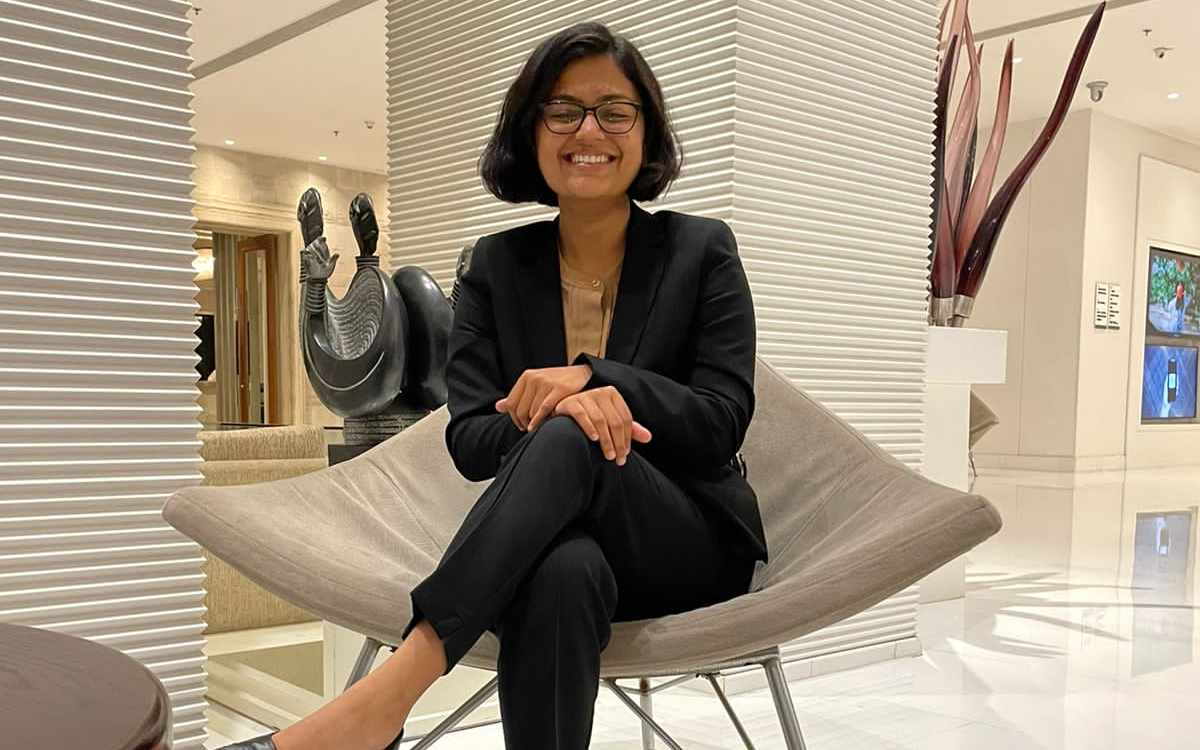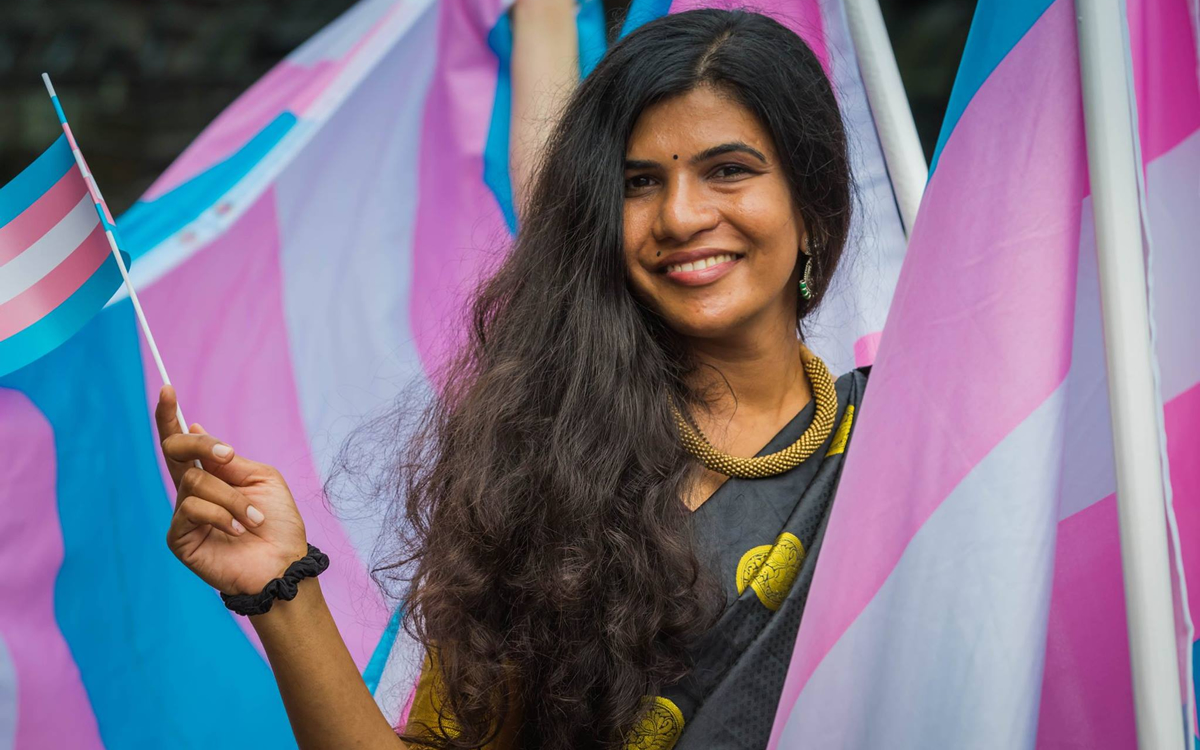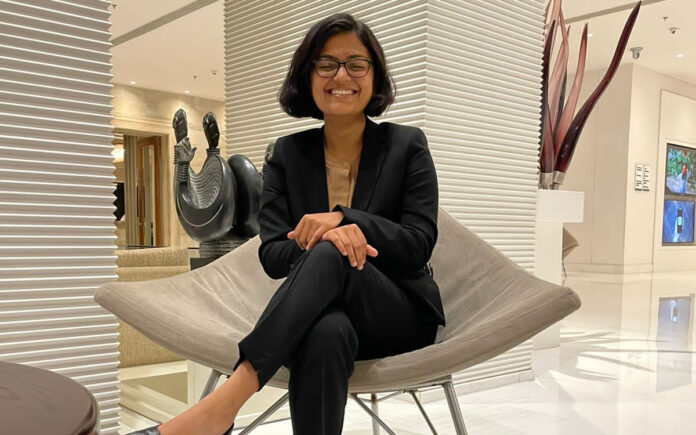India on Aug. 15 celebrated 76 years of independence.
This year’s Independence Day was very different. The Indian flag was everywhere; on cars, taxis, trucks, homes and government buildings. The country celebrated its true identity — Bharat, the Sanskrit name of India.
Sanskrit, the world’s oldest language, is part of India’s cultural identity. But the country’s LGBTQ and intersex community is still searching for true inclusion in different government and private institutions.
The Indian Supreme Court in 2018 struck down the colonial-era law that criminalized homosexuality. Four years later, on Aug. 15, Prime Minister Narenda Modi addressed the national from the Red Fort in Delhi, and talked about his vision for the country by 2047, but he did not specifically address the LGBTQ and intersex community.
The Indian government and private institutions do not allow people to choose gender-neutral or genderfluid identity markers. The use of appropriate pronouns for the LGBTQ and intersex community in public or private institutions is not very common either.
The Washington Blade sought comment from the Indian Post, the world’s most heavily used mail system, for comment on the issue, but it did not reply.
The Indian Post offers a variety of mail, insurance and banking services to its customers. While analyzing the saving account opening form, the Blade found that there are only three gender options: Male, female and other.
The Supreme Court in 2014 recognized transgender people as the third gender in a landmark ruling and ordered the government to provide welfare programs to the community.
“It is the right of every human being to choose their gender,” said the Supreme Court.
The available gender options force one to identify either with male, female, or other as trans even if they are not any of these. The Madras High Court in 2021 laid out an agenda of inclusion for the LGBTQ and intersex community, but the majority of government and private institutions are still far from following these rulings.
The Blade also contacted public sector banks as well as private ones like HDFC Bank; Central Board of Secondary Education; a national level education board; Axis Bank and the Department of Social Justice and Empowerment, but received no response.
The Blade reached out to the Bank of Baroda, one of the country’s public sector banks.
A person with the bank’s HR team hung up the phone when asked to comment. The bank has a branch in New York, but it did not respond to a request for comment.
Not everything, however, is as bad as it seems.
Kerala, a state in southern India, in January 2021 decided to include “transgender” as the option in all government forms for a more inclusive approach. Following the Supreme Court judgment, the state established a district board for the trans community that can respond to trans-specific ID cards.
Government and private institutions are failing to achieve complete gender inclusivity — including the use of proper pronouns — in spite of efforts to enact progressive policies for India’s trans, lesbian, gay, bisexual, queer and intersex communities.
Tamil Nadu, another state in southern India, on Aug. 20 published a document from its Social Welfare and Women Empowerment Department.
The document included a glossary of terms to be used to address the LGBTQ and intersex community, and it came from the Madras High Court. The Tamil Nadu government mandates the use of terms from the glossary in all institutions, including the media, to address community members. It includes “thirunangai” (trans women,) “thirunambi” (trans men,) “pal puthumaiyar” (queer) and “oodupal” (intersex.)
Many high school students with whom the Blade spoke said the use of these terms would be a positive step towards inclusivity, but private schools and other institutions do not provide many options for those who want to select their gender.
The Blade in December 2021 reported the National Council of Educational Research and Training published a manual to make teachers and students more sensitive to LGBTQ and intersex issues. It was meant to create a more inclusive environment for trans students, but the organization withdrew the manual after conservative activists protested.
To make sense of how gender identity and sensitization about gender can affect students in schools, one must look back at February of this year, when a student of Delhi Public School, a premier private school, died by suicide by jumping off his residential building. His mother in a complaint she filed with the police alleged her teenaged son faced extreme harassment at school over his sexuality.
Changes in colleges and universities are also coming, but the pace is slow.
The Blade in April reported that the National Academy of Legal Studies and Research became India’s first gender-neutral university. With this new policy, the university also included the gender-neutral prefix Mx.
The Indian Institute of Technology in Mumbai, a premier institution in India, and other central government-funded institutions have accepted and are supporting LGBTQ and intersex inclusion by allowing the formation of an LGBTQ and intersex club at the campus. But gender options other than male, female and other, are still not available on the institute’s entrance exam or during the admission process.
“We agree that despite various rulings and judgments passed by the Supreme Court, there is still a long way to go for having better inclusion in government institutions. Though from having ‘male’ and ‘female’ as the only two default options to choose from, there has been increasing inclusion of ‘genderfluid’, ‘others’, ‘prefer not to say,’ etc., as categories of identity in many, if not all, places,” said Khushi, a representative of Saathi, an LGBTQ and intersex support group and a club at the Indian Institute of Technology. “Yet to make this phenomenon or this change a habit or routine, there is a lot that needs to happen. Given the way Indian society is structured, this entire idea many a time falls on deaf ears.”

Saathi throughout the year organizes workshops, movie screenings and informal meetings for everyone, including straight people who want to understand the community.
“To bring about a change, the government bodies have to consistently use inclusive language across its portals. Being inclusive in the school/college admission process as well as a further commitment to a gender inclusive and friendly environment can go a long way,” said Khushi. “Apart from that government can support already existing academic level and independent organizations that uphold the LGBTQIA+ cause. Anti-harassment policies can be gender neutral. In case of universities there can be courses that run-in sex and gender identity. There can be compulsory nonbinary gender orientations. There are many other things that can be done but the point is that though slowly but surely some change is coming through.”
Instagram in 2021 announced the inclusion of the LGBTQ and intersex community by providing the option to add pronouns. But Meta’s picture-sharing app is still far from providing the Indian LGBTQ and intersex community with this feature.
The Blade reached out to Meta for a comment on the issue, but the company, which faces accusations of failing to prevent the incitement of violence in neighboring Myanmar, did not respond to multiple requests.
While talking with the Blade, Kumaresh Ramesh, a former Saathi coordinator, said that even though the courts have decriminalized same-sex relationships and advanced the rights of people in the trans community, there is a lot of work left to be done to mainstream acceptance in the society.
Ramesh graduated from the Indian Institute of Technology last year and is no longer part of Saathi. While expressing his opinion, he suggested some measures which can help normalization of other gender and pronoun use.
“While one can litigate in court for enforcing these changes, we should also work on organically making it commonplace. For instance, if we make it a point to state our preferred pronouns and encourage others to do so, the government will eventually have to follow suit. I would like to request professors and teachers across disciplines to also state their preferred pronouns while they introduce themselves. This could be a small but powerful step towards fostering acceptance,” said Ramesh.
“Although IIT Bombay is centrally-funded and the current central government has not come out in support of the LGBTQ community, the administration has been largely supportive of Saathi, especially in the more recent years as awareness about the community has gone up. Talking about the government, intent is the key. If the government wishes to further the acceptance of the community, the importance of diversity and inclusion should be taught to school students. Greater representation of the community in school curriculum will increase acceptance not just in the young generation but also their parents and grandparents.”
Neysara, the founder of Transgender India, an online portal that supports the trans community and creates awareness, said that preferred gender-neutral pronouns are important for the Indian trans community. She also said that to make preferred/gender-neutral pronouns one of the centerpieces of Indian trans discourse would be a prime example of blindly copy-pasting western trans discourse to India without any understanding of the cultural context.
“Forget the pronouns printed in a form, most trans people in the country are not even allowed to enter SBI (one of India’s largest public sector bank) or a post office,” said Neysara. “How will they even see this form? Such tokenistic moves of printing a word on a form is super easy, what’s more difficult is inclusion, reform and sensitization. That’s what we need in any office.”

Ankush Kumar is a freelance reporter who has covered many stories for Washington and Los Angeles Blades from Iran, India and Singapore. He recently reported for the Daily Beast. He can be reached at [email protected]. He is on Twitter at @mohitkopinion.








